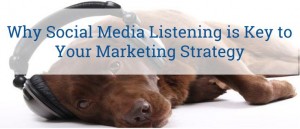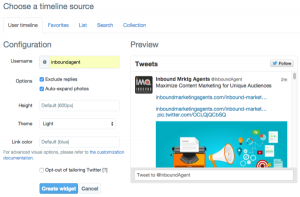The truth is that a regular social media presence is considered table stakes for all kinds of businesses today.
Often, there are misunderstandings about social media marketing and how it actually works for a business. Often, an organization has created some content, scheduled some posts to promote that content for several weeks or months, and then becomes disappointed when they don’t generate any sales.

In truth — B2B social media marketing is a much longer process. It requires foresight, consistency, and an effort to engage in real conversations with your audience genuinely. Social media success doesn’t come overnight, but when it does come, the results are impressive.
Most companies need a shift in mindset to achieve B2B social media marketing success. That starts with changing the way they look at specific aspects of their social media presence:
1. Your Buyers Want to Engage Through Social Media
This is (sometimes surprisingly) a big hurdle for many of the companies they work with. They see social media selling as more of a passive thing. They hope that consistent posting and interesting content will be enough. While that does provide a foundation for success, it really does take a bit more to deliver the results that most B2B companies are hoping for.
The bad news is that it takes you a moment to think about it and that you have to be intentional. The good news is that it’s not very complicated. It’s important to know that your customers want to buy through social media. They want to develop real, lasting relationships with the companies that they work with. They want to get to know people before they buy from them. Social media gives them that chance. It’s more personal than a cold email or call.
Getting over the mental block of seeing social media as a passive presence-building platform instead of looking at it as a legitimate sales channel that your prospects prefer is important for engaging with prospects in the right way — fearlessly.
2. Focus on Building Relationships, Not Sales
With that said, it is crucial that you not approach the conversations on social media as if they were a cold call. Yes, your audience wants to buy and get to know your company through social media. But that doesn’t mean that they want to be hounded or pursued in the traditional sales sense. Many folks on social media switch out the word ‘phone’ for ‘LinkedIn’ or ‘Twitter,’ and before you know it, someone tries to sell you rugs, services, or hardware immediately after you connected with them on the platform of choice.
Instead of focusing on the number of sales that your social media presence generates, focus on the number of worthwhile relationships you’ve been able to build. Direct social media sales come through prospects that you’ve built a relationship with, not prospects that you blindly launch a sales pitch at. In a nutshell: if you’re selling, you’re already doing it wrong.
3. B2B Social Media Marketing is a Long-Term Strategy
The last and perhaps most important mindset change that all businesses need to undergo to put themselves in a B2B social media marketing position is tempering your expectations regarding the time frame. It will most likely take weeks for your first results to begin showing and months before your social media marketing presence drives impressive, measurable results.
Don’t get down on yourself when you don’t see results right away. Relationships take time to build. No one meets someone and considers them a friend right away. Those relationships require continued interaction to reach that stage. For that reason, we set the expectation with our clients that they should see sales-relevant results within 3-4 months. That doesn’t mean that you won’t see traction before then, but building relationships and trust takes time. It’s not done with a tweet.
The good news: the relationships you build that way are based on your engagement and your expertise. You will build yourself a long-lasting pipeline of contacts that will either engage with you directly or refer you to others. It’s not the quick rush of getting 500 clicks to your website after running an ad on Facebook. But the advantage is that the relationships from social selling are pre-qualified; it’s not simply someone clicking on a keyword ad only to realize that you define their search term differently than they do. And finally, it’s also not something that immediately stops afterward after that initial engagement.
This article was previously published on SocialSellinator’s blog.
Digital & Social Articles on Business 2 Community
(125)
Report Post







